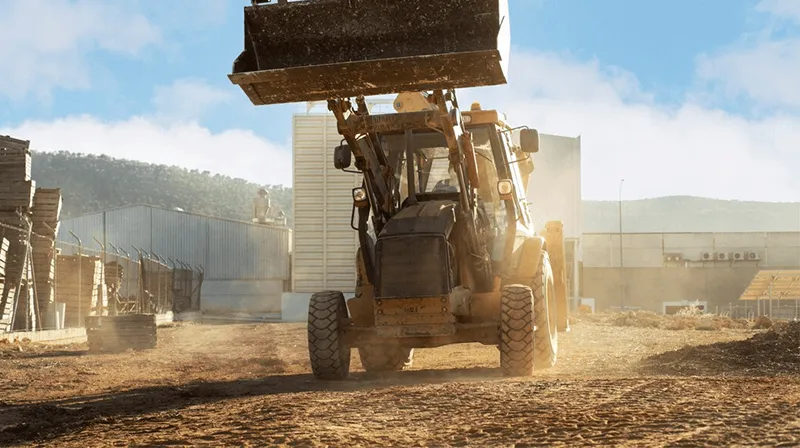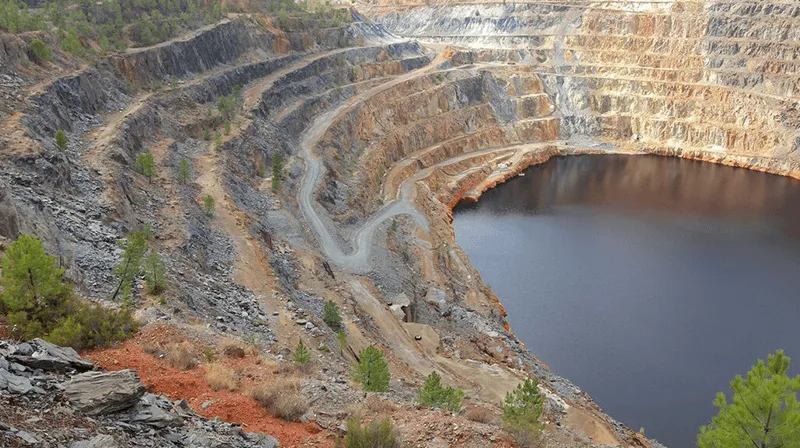The mining industry has long been a cornerstone of Ghana’s economy, contributing significantly to the country’s GDP, employment, and foreign exchange earnings. With rich deposits of gold, bauxite, manganese, and other minerals, Ghana stands as one of Africa’s leading mining nations. However, the future of mining in Ghana hinges on a crucial factor: sustainability. As environmental, social, and economic challenges mount globally, it is imperative for Ghanaian mining operations to adopt sustainable practices to ensure long-term viability and success.
The Imperative for Sustainable Mining
Sustainability in mining is not merely a trend; it is a necessity. The environmental impact of mining activities, from deforestation to water pollution and soil degradation, has long been a point of contention. Traditional mining practices have often led to adverse effects on local communities and ecosystems. As awareness of environmental issues grows, so does the demand for responsible mining practices.
In Ghana, the need for sustainable mining is particularly acute. The country’s mining regions, such as the Ashanti, Western, and Northern regions, are rich in biodiversity and home to numerous communities whose livelihoods depend on the natural environment. Unsustainable mining can lead to devastating consequences, including loss of biodiversity, displacement of communities, and long-term health problems due to pollution.
Environmental Sustainability
Environmental sustainability in mining involves minimizing the ecological footprint of mining activities. This includes reducing greenhouse gas emissions, managing waste effectively, conserving water, and rehabilitating mined land. Implementing sustainable practices can help mitigate the environmental impact of mining operations in Ghana.
One critical aspect of environmental sustainability is the responsible management of waste. Mining generates a significant amount of waste, including tailings and slag, which can contaminate soil and water sources if not managed properly. Adopting best practices in waste management, such as reusing and recycling materials and ensuring proper disposal, can significantly reduce environmental harm.
Water conservation is another vital component. Mining operations often require substantial amounts of water, which can strain local water resources. Implementing water-efficient technologies and practices, such as recycling water used in mining processes and treating wastewater, can help preserve this precious resource.
Social Sustainability
Beyond environmental considerations, social sustainability is equally important. Mining operations have profound effects on local communities, affecting their livelihoods, health, and well-being. Sustainable mining practices must therefore prioritize the welfare of these communities.
One approach to achieving social sustainability is through community engagement and development. Mining companies should actively involve local communities in decision-making processes and ensure they benefit from mining activities. This can include providing employment opportunities, investing in local infrastructure, and supporting education and healthcare initiatives.
Health and safety standards are also paramount. Ensuring that mining operations adhere to stringent health and safety regulations can prevent accidents and protect workers and nearby communities from health risks associated with mining activities.
Economic Sustainability
Economic sustainability in mining involves creating long-term economic value while minimizing negative impacts. This includes maximizing the efficiency of resource extraction, investing in innovative technologies, and ensuring that mining operations are financially viable in the long run.
Investing in technology and innovation is crucial for economic sustainability. Technologies such as automation, artificial intelligence, and data analytics can enhance the efficiency and productivity of mining operations. For instance, automation can reduce the need for manual labor in hazardous environments, thereby improving safety and reducing costs. Data analytics can optimize resource management and streamline operations, leading to increased profitability.
Furthermore, mining companies should adopt a long-term perspective, focusing on the entire lifecycle of a mining project, from exploration to closure and reclamation. This approach ensures that mining operations are not only profitable but also leave a positive legacy for future generations.
Case Study: IHTMOC Consulting’s Role in Promoting Sustainable Mining
IHTMOC Consulting, recognises the critical importance of sustainability in the mining sector. As a Ghanaian-owned firm specializing in mining and engineering consultancy, we are committed to providing sustainable and intelligent mining solutions that enhance economic, social, and environmental performance.
Our comprehensive range of services spans from exploration to project readiness and extraction. We assist mining companies in adopting sustainable practices by offering innovative solutions tailored to the specific needs of the mining sector. Our approach is grounded in the belief that sustainability and profitability are not mutually exclusive but can, in fact, reinforce each other.
For example, we help mining companies implement waste management systems that minimize environmental impact while recovering valuable materials. Our water conservation strategies ensure efficient use of water resources, reducing costs and environmental strain. Through community engagement initiatives, we foster strong relationships between mining companies and local communities, ensuring that mining activities contribute positively to local development.
The Path Forward: Embracing Sustainability
The future of mining in Ghana depends on the industry’s ability to embrace sustainability. By adopting sustainable practices, mining companies can mitigate environmental impacts, improve social outcomes, and ensure long-term economic viability. This not only enhances their reputation and competitiveness but also contributes to the broader goal of sustainable development in Ghana.
Governments, industry stakeholders, and local communities all have a role to play in this transition. Policymakers can support sustainable mining through regulations and incentives that encourage responsible practices. Industry stakeholders, including mining companies and service providers like IHTMOC Consulting, can lead by example, demonstrating the benefits of sustainable mining. Local communities, meanwhile, can engage with mining companies to ensure their needs and concerns are addressed.
In conclusion, sustainability is not just a key to the future of mining in Ghana; it is the key. As environmental, social, and economic challenges continue to evolve, sustainable mining practices will be essential for ensuring the long-term success and resilience of the mining sector. By prioritizing sustainability, Ghana can continue to harness its rich mineral resources while safeguarding its environment and communities for future generations.





